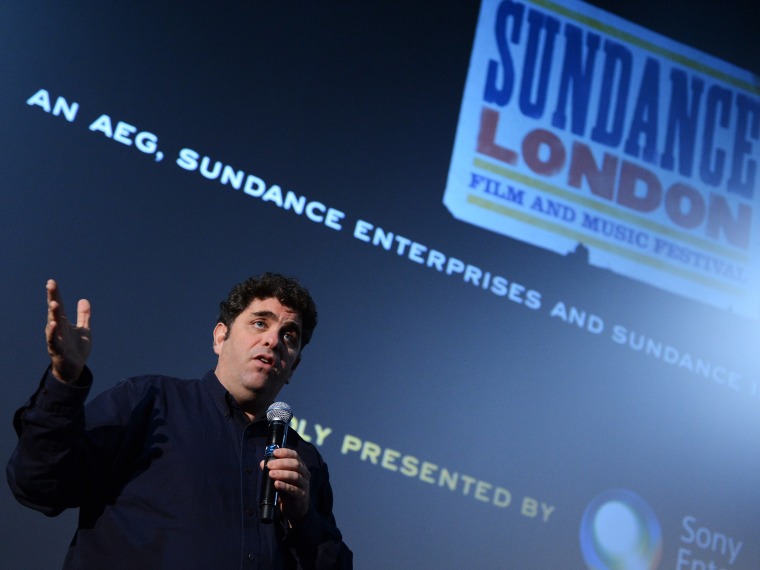In 1971, with President Richard Nixon at the helm, the U.S. embarked on its first battle in the war on drugs. The issue began as a national health crisis. Back then, two-thirds of the money spent fighting drug abuse in America was devoted to treatment and recovery. Today, that share has slipped to less than a third. Now, more than 40 years, $1 trillion, and 2.3 million imprisoned Americans since the war began, the U.S. still leads the world in illegal drug use.
The drug war’s cost to society–both economic and human–is the subject of a new documentary by award-winning filmmaker Eugene Jarecki. Spanning four years and 20 states, Jarecki’s film, The House I Live In, tells the story of the war on drugs through those courageous enough to talk about it. Backed by producers Brad Pitt, Danny Glover, John Legend and Russell Simmons, the documentary is attracting critical acclaim. It won the Sundance Grand Jury Prize earlier this year and last week made the shortlist for the Best Documentary Oscar.
Pieced together with archival footage, The House I Live In illuminates the lives of families torn apart more by the drug war than by the disastrous effects of drugs themselves. From prison guards to police officers and judges, Jarecki portrays the many ways in which America's war on drugs has failed to vanquish the nation's drug problem. Along with stories from prisoners and drug users, the first-hand accounts from within the justice system offer rarely-seen proof of the growing opposition to America’s longest war.
As looser drug laws take hold in Colorado and the state of Washington, the sense that something is changing is palpable. But while laws and public discourse adapt to new times, the costly drug war goes on. In 2012, according to the Office of National Drug Control Policy, the U.S. committed $25 billion to tackling drug abuse.
Appearing on Andrea Mitchell Reports the day Colorado’s new marijuana law went into effect, Jarecki called the war on drugs America’s “largest human rights crisis.” Referring to nationwide mandatory minimum sentencing laws for certain drug violations, Jarecki told Andrea Mitchell, “You have a nonviolent person who will go to jail for the rest of their life and never get out, and you have murderers down the hall who will get out in ten to 15 years.”
One of the compelling personal accounts in the film comes from Mike Carpenter, a hardened security chief who runs a prison in Oklahoma. In the film, Carpenter tells Jarecki that “sometimes we have people doing a whole lot of time for not very much crime. It’s almost like they’re paying for our fear instead of paying for their crime.” Carpenter eloquently points to the “tough on crime” stance that every president since Nixon has had to take in order to get elected. For that reason, Carpenter says, elected officials can’t voice opposition to the drug war out of fear of appearing soft on crime.
In his film, Jarecki argues that another factor is behind the continued war on drugs: jobs. Members of Congress, he says, have opposed reform when their districts stand to lose prison jobs. Asked about the business behind the war on drugs, Jarecki told Andrea Mitchell, “I would like to see all of those people who work in that field have the same kind of job, but in a treatment, compassion-based universe.”
Although the film depicts a nation disillusioned by a once well-meaning cause, finding a solution to America's drug problem seems daunting. So, Jarecki told Mitchell Reports, politicians simply don’t talk about it anymore. “You didn’t hear the candidates talk about it in the election,” whereas, referring to the many presidents who champion the drug war in his film, “they used to want to talk war on drugs all the time.” That has changed, Jarecki told Andrea Mitchell, “because after 40 years of total failure, it’s almost political suicide to stand up for the war on drugs anymore.”
Jarecki remains hopeful that in the face of such disappointing results, the drug war could soon be over. The question, he says, is how. His answer: “Tax and regulate--something that smart countries like Portugal have already gotten a huge lead in and have had huge success.”
But first, we’ll see how the Department of Justice reacts to the enforcement of looser drug laws in states like Washington and Colorado.
Editor’s Note: The following information has been updated since the article initially appeared online:
Originally, we reported that 10 percent of the drug war financing was committed to treatment, but that figure is in fact less than one-third (28 percent). Additionally, we reported that the U.S. spent $15 billion fighting the war on drugs in 2010. Since more recent data is available, we have updated this to reflect that in 2012, $25 billion was committed to drug control.
